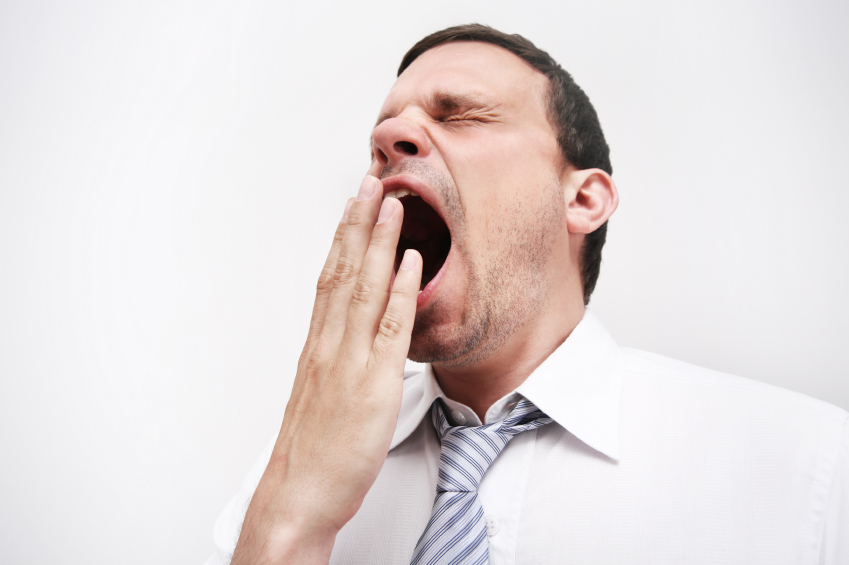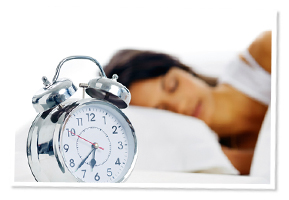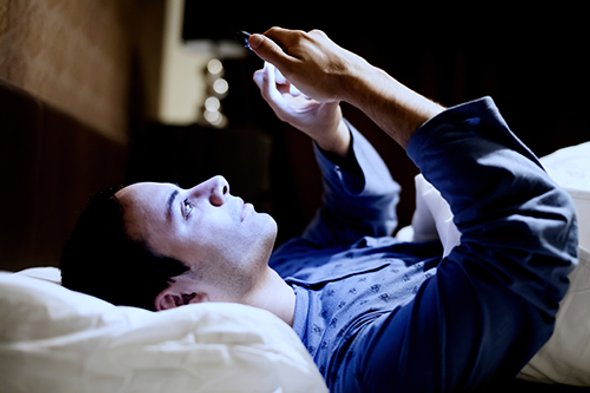
Is my lack of sleep making me fat?
Despite what you might hear, fat loss is NOT just about diet and exercise.
Most people never know there may be a very simple reason why they aren’t losing fat: They don’t sleep well. While frequent exercise and a healthy diet are key elements in most fitness programs, sleep is often overlooked.
3 Harmful Effects of Not Sleeping 8-10 Hours

-
It makes your body burn muscle instead of fat.
Recent research has shown that sleep plays an important role in weight management. Studies published in The Journal of the American Medical Association, the Annals of Internal Medicine, and The Lancet find that dieters’ sleep duration affects their weight loss. When the participants slept 5 hours, they lost weight but from muscle; however, when the same participants slept 8.5 hours they lost weight from fat.
>>The muscle preservation solution: Get enough sleep. 8-10 hours of sleep will preserve lean tissue.
-
It increases fat storage.
Sleep loss seems to interfere with the body’s insulin sensitivity, reducing its ability to respond to insulin by about 30%, and a downward spiral happens when fat cells become less responsive to insulin. The first is an increase in blood sugar, which then causes an overproduction of insulin, which then leads to increased body fat and then to insulin resistance. When your fat cells start to become insulin resistant, lipids start to leach out of your fat cells and rise in the circulation. They then start to accumulate in other tissues in your body (such as in the liver, where it can lead to fatty liver disease). Then it starts to interfere with the body’s ability to clear glucose (sugar) from the blood. This is what sets the stage for the metabolic problems, type 2 diabetes, fatty liver disease, and fat gain.
>>The fat storage solution: Get enough sleep. 8-10 hours of sleep will aid in fat mobilization.
-
It affects several hormones.
LEPTIN AND GHRELIN (the Dr. Jekyll and Mr. Hyde)
Ever noticed how your late night movie marathon easily turns into a binge-fest as you clean out your fridge overnight? Well, blame it on the hormones leptin and ghrelin, two hormones that play an important role in stimulating and suppressing your appetite.
Ghrelin
Sleep deprivation causes an increase in acylated ghrelin. Ghrelin is released by your stomach, and stimulates your appetite while reducing energy expenditure and promoting the retention of fat.
Wait, I’m not done yet…
Leptin
While ghrelin is the hormone that makes you hungry, leptin is the one that makes you stop eating. Leptin is produced by your body’s fat cells and is responsible for suppressing hunger. Lack of sleep causes a lowered leptin level, which not only reduces metabolism but makes your eating more uncontrollable.
>>The ghrelin & leptin solution: Get enough sleep. 8-10 hours of sleep decreases hunger and will therefore help you lose weight.
GROWTH HORMONE
It is also important to realize that the quality of sleep (that is, getting the right amount of “deep sleep”) is just as important as the quantity of sleep (the number of hours). Decreased amounts of restorative deep or slow-wave sleep are associated with significantly reduced levels of growth hormone, a protein that helps regulate the body’s proportions of fat and muscle in adulthood.
During sleep, your pituitary gland secretes more growth hormones than during your waking hours. Growth hormones stimulate cell regeneration, reproduction and growth. These hormones are also known to aid you in building muscles. This is why higher levels of growth hormones means a heightened metabolism, meaning you’ll burn energy much faster leading to easier weight loss.
>>The growth hormone solution: Get enough sleep. 8-10 hours of sleep increases growth hormone and will therefore help you lose weight.
CORTISOL
When we sleep less, our body produces extra stress hormones known as cortisol, which inhibits fat loss and promotes lean mass catabolism (breaking down muscle for fuel). Since our metabolism is directly linked to the amount of lean mass we carry, the decrease in muscle leads to metabolic slowdown and hence less fat burnt.
>>The cortisol solution: Get enough sleep. 8-10 hours of sleep decreases cortisol and will therefore help you lose weight.
10 Ways to Increase your Chances of Sleep!
In America, it seems only unicorns get 8-10 hours of sleep a night, and the rest of us suffer the damages. However, getting good sleep goes beyond simply getting in those 8-10 hours. Establishing good sleep routine goes a long way, not just for your body composition but also in helping your concentration and productivity.
You have to stick with it though. It will be tough. Your life habits will fight you to the death on this one…..but nonetheless, stick with it. It takes at least 21 days to build a habit. So at the very least give it that. Here are some tips to set your sleep pattern ritual:
1. ESTABLISH A FIXED SLEEP SCHEDULE
Keep a relatively consistent bedtime and wake time. Staying up late and sleeping in on weekends can disrupt your routine during the week.
Most people lose sleep because we choose to. We watch TV. We browse the internet. We go out with friends. This voluntary bedtime delay is something found only in modern society. The average American slept nearly 9 hours each night a century ago. If we were to remove forms of artificial stimulation and excessive work/life demands, we would likely sleep for about 8 hours per night, based on the natural sleep/wake cycle of the brain.
2. RELAXATION/ROUTINE:

Develop a pre-bed routine that is relaxing and familiar. Television, work, computer use, movies and deep/stressful discussions late at night can disrupt sleep. Try reading, stretching, bathing, soothing music, etc…
3. STIMULANTS:

Eliminate stimulants like caffeine, nicotine, chocolate, etc…especially later in the day.
4. EXERCISE:

It’s not only good for a tight butt and big guns, it can help improve sleep. Exercising regularly is a great way to improve your fitness and shed some pounds. When you exercise, you tire your body and actually inflict small injuries to your muscles. To improve your performance, you have to allow your body to heal. During sleep, your body recuperates the quickest. When you do not sleep enough, you will stay fatigued and your performance level will drop. Sleeping enough will allow your body to rest, recover and grow stronger.
5. FULLNESS:

- Fresh, whole foods contain more fiber, protein, and healthy fats, which require more time and effort to digest than the refined carbohydrates that make up the majority of processed food. This keeps you satisfied longer, stabilizing your blood sugar and various hormones needed for good sleep.
- Tryptophan, an amino acid in high-quality protein sources, is a precursor to serotonin, which gets converted into melatonin to encourage sleep.
- Balancing your energy intake alone can lead to better rest if it helps you lose excess body fat. (Excess body fat can make sleep uncomfortable because of heartburn, lack of mobility, sleep apnea, and other obesity-related problems.)
Eating a dinner that makes you overly full right before bed can disturb sleep. Be sure to finish eating about an hour before bed.
6. AVOID DRINKING ALCOHOL:

Alcohol can be detrimental to both sleep and weight loss! It may help induce sleep initially, but the transition to a deep sleep phase is slowed down. In fact, alcohol is thought to prevent the secretion of adrenaline (the stress hormone) and disturb the activity of tryptophan and serotonin, two neurotransmitters that regulate sleep.
7. LIGHT:

It isn’t always widely known, but spending days in rooms with artificial low lighting dips into the body’s reserves of melatonin, a hormone that allows the onset of sleep. This causes the body to secrete of lower levels of melatonin in the evening, which can impact your refreshing, quality sleep. Detrimental light from screens can be optimized by downloading a free program like F.lux, giving the light a yellow tinge for a softer effect. I have one on my computer and on my cell phone.
At night, keep the bedroom extremely dark to tell the body’s light-sensitive clock that it’s time to sleep. Cover all ambient light (cell phones, alarms, TV power buttons, etc…) because believe it or not, those too will also affect your quality deep sleep.
8. TEMPERATURE:

Keep a slightly cool temperature in the room, between 66-72 F or 18-22 C. This aids in getting you to (and keeping you in) that deep sleep.
9. NOISE:

Keep the bedroom extremely quiet or use a white noise generator (such as a fan) to help eliminate wake-ups from various light nighttime sounds.
10. FINALLY: MAKE GOOD SLEEP A PRIORITY, JUST LIKE THE REST OF YOUR HEALTHY HABITS

Sleep is a crucial factor in losing weight. Sleep suppresses your appetite and raises your metabolism, while allowing your body to rest and recover. So aside from leading an active lifestyle and maintaining a healthy diet, you should also make sure that you get your full 8-10 hours every night.
Now, turn off your smart phone, close the computer and go start your newest bedtime routine ritual!
†Results may vary. Information and statements made are for education purposes and are not intended to replace the advice of your doctor. Train with Jodi does not dispense medical advice, prescribe, or diagnose illness. The views and nutritional advice expressed by Train with Jodi are not intended to be a substitute for medical service. If you have a severe medical condition or health concern, see your physician.
References:
Josiane L. Broussard, PhD; David A. Ehrmann, MD; Eve Van Cauter, PhD; Esra Tasali, MD; and Matthew J. Brady, PhD. Impaired insulin signaling in human adipocytes after experimental sleep restriction: A Randomized, Crossover Study. Ann Intern Med. 2012;157(8):549-557. doi:10.7326/0003-4819-157-8-201210160-00005 http://annals.org/article.aspx?articleid=1379773
Nedeltcheva AV, Kilkus JM, Imperial J, Schoeller DA, Penev PD. Insufficient sleep undermines dietary efforts to reduce adiposity. Annals of internal medicine. 2010;153(7):435-441. doi:10.1059/0003-4819-153-7-201010050-00006. http://www.ncbi.nlm.nih.gov/pmc/articles/PMC2951287/
Schmid, Sebastian M et al. The metabolic burden of sleep loss The Lancet Diabetes & Endocrinology , Volume 3 , Issue 1 , 52 – 62. http://thelancet.com/journals/landia/article/PIIS2213-8587(14)70012-9/fulltext



